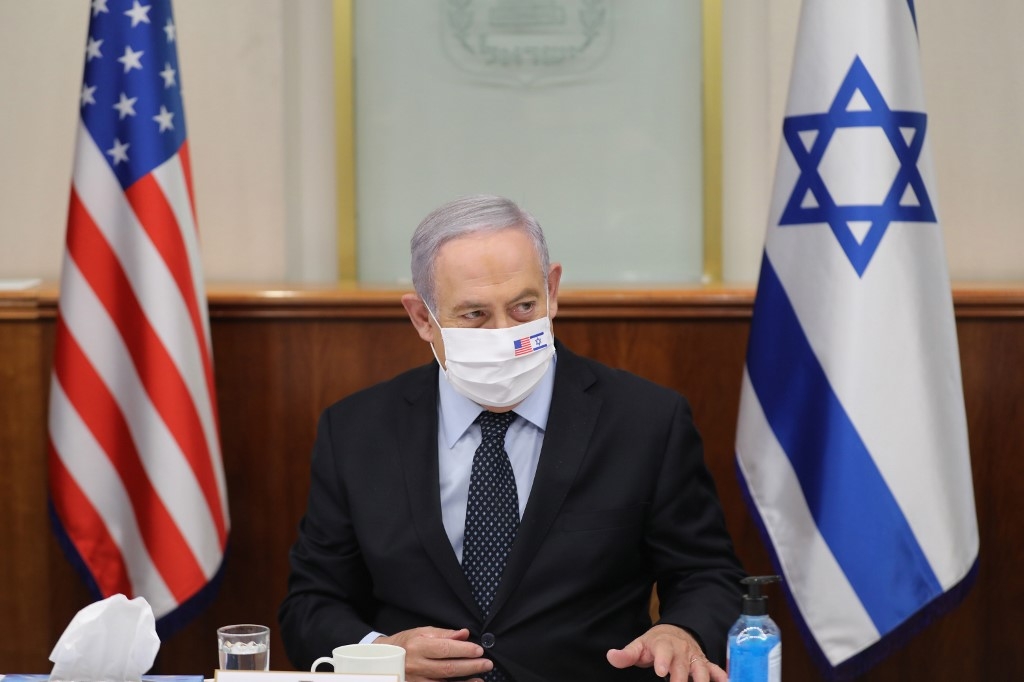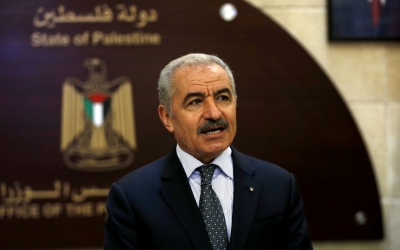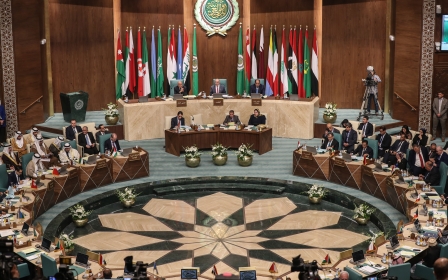Israel set to sign normalisation deal with UAE, Bahrain in Washington

Israeli Prime Minister Benjamin Netanyahu and officials from the United Arab Emirates (UAE) and Bahrain are due to sign a US-sponsored deal to normalise diplomatic relations in Washington on Tuesday.
The secretive accord has been denounced by Palestinians as an Arab betrayal of their struggle against occupation.
Following criticism over the lack of details made public regarding the content of the deal, a source in the Israeli delegation to Washington told correspondents that the two sides had agreed not to reveal all the details before the agreement was signed due to the “sensitivity of the wording”.
However, the agreements will be brought before the Israeli cabinet and parliament for ratification before they take effect, said the source. More clauses will be added to the pact with the UAE concerning cooperation in various civic areas, they added.
The accord to be signed with Bahrain will be mostly declarative, the source said, as it was announced only several days ago, which, according to Israeli senior officials, did not leave enough time to formulate a peace treaty.
However, officials say that such a treaty would be formulated later on, Israeli newspaper Haaretz reported.
A US senior official said in a briefing to Israeli reporters overnight Monday that Israel will first sign similar agreement with the UAE and Bahrain, adding that separate bilateral agreements with the two Gulf states will be signed later.
Criticism across Israeli political spectrum
Netanyahu's lack of communication over the details of the accords has been criticised by both the left and right in Israel.
The deal reportedly includes a freeze on Israel's proposed annexation of the West Bank. Israel's far right is said to be concerned about further concessions regarding illegal settlements, as well as about official Israeli recognition of the two-state solution, meaning a Palestinian state.
Such a declaration was reportedly requested by the UAE and Bahrain, who want to broadcast to the Arab world that they have not abandoned the Palestinians and Saudi Arabia's Arab Peace Initiative - although critics have rubbished such claims as empty words.
The worries come despite the fact that Israel has insisted that annexation remains a possibility.
Others are concerned that the undisclosed documents contain clauses involving arms deals which have not been approved by Israel, such as the sale of F-35 fighter jets the US are considering selling to the UAE.
'No intention' of discussing peace
Meanwhile, Israeli opposition leader Yair Lapid told AFP on Monday that Netanyahu has "no intention" of discussing peace with the Palestinians.
"This government has no intention of discussing anything with the Palestinians," said the Yesh Atid party leader, who pushed for the resumption of peace talks.
"The current government is saying we have achieved agreements with moderate Sunni countries without paying the price of negotiating with the Palestinians.
"What I say is it's not a price. It's an Israeli interest," he said during the interview at his parliamentary office.
Lapid's former allies Benny Gantz and Gabi Ashkenazi defected to join Netanyahu's government and now serve as defence and foreign ministers respectively.
Pointing to the normalisations deals, Lapid said it was clear both ministers "have no influence whatsoever" in government.
Netanyahu "signed the deal with the Emirates and yet later with Bahrain without telling them. It's not only that he didn't consult with them. They didn't even know," Lapid said.
Qatar will not normalise relations
The US is hoping some other Arab ambassadors to Washington will attend the signing ceremony in Washington.
Reuters reported that only one European Union ambassador, from Hungary, will attend the event.
Sources in the EU told Israel's Haaretz newspaper that no other European ambassadors were invited.
The administration hopes that Sudan, Oman and possibly Morocco will join the normalisation process in the future.
On Monday, Qatar's assistant foreign minister said Doha would not be joining its Gulf Arab neighbours in establishing diplomatic relations with Israel until its conflict with the Palestinians was resolved.
In an interview with Bloomberg, Lolwah Al-Khater said: “We don’t think that normalisation was the core of this conflict and hence it can’t be the answer.
“The core of this conflict is about the drastic conditions that the Palestinians are living under (as a) people without a country, living under occupation.”
'Black day'
The signing of normalisation accords between Israel and two Gulf states will amount to another "black day" for the Arab world, Palestinian Prime Minister Mohammed Shtayyeh said on Monday.
Both the Fatah-led Palestinian Authority (PA) and the Hamas movement, which governs the Gaza Strip, have condemned the US-brokered accords as a "stab in the back" of their people.

Palestinians protested on Tuesday to coincide with the signing ceremony and urged other Arab states "not to take part in celebrations".
Shawan Jabarin, the general director of Palestinian human rights organisation Al-Haq, denounced the accords as "shameful" and called on the international community and the Palestinian people to oppose them.
"The decision of the United Arab Emirates and Bahrain to normalise relations with Israel lays bare what has been clear to Palestinians for decades: Israel’s illegal acts of annexation and apartheid will not deter those in power from the pursuit of their own interests, to the detriment, if not damnation, of justice, accountability and human rights in Palestine," Jabarin said.
"In effect, the normalisation of diplomatic and trade relations between the UAE, Bahrain and Israel reveal a worrying and detrimental trend in regional state practice towards the acceptance and endorsement of Israel’s illegal acts against our people, including the closure and collective punishment of the Gaza Strip, enforcement of an apartheid regime over the Palestinian people as a whole, the annexation of our land, and the erasure of the Palestinian people," he added.
Middle East Eye delivers independent and unrivalled coverage and analysis of the Middle East, North Africa and beyond. To learn more about republishing this content and the associated fees, please fill out this form. More about MEE can be found here.






